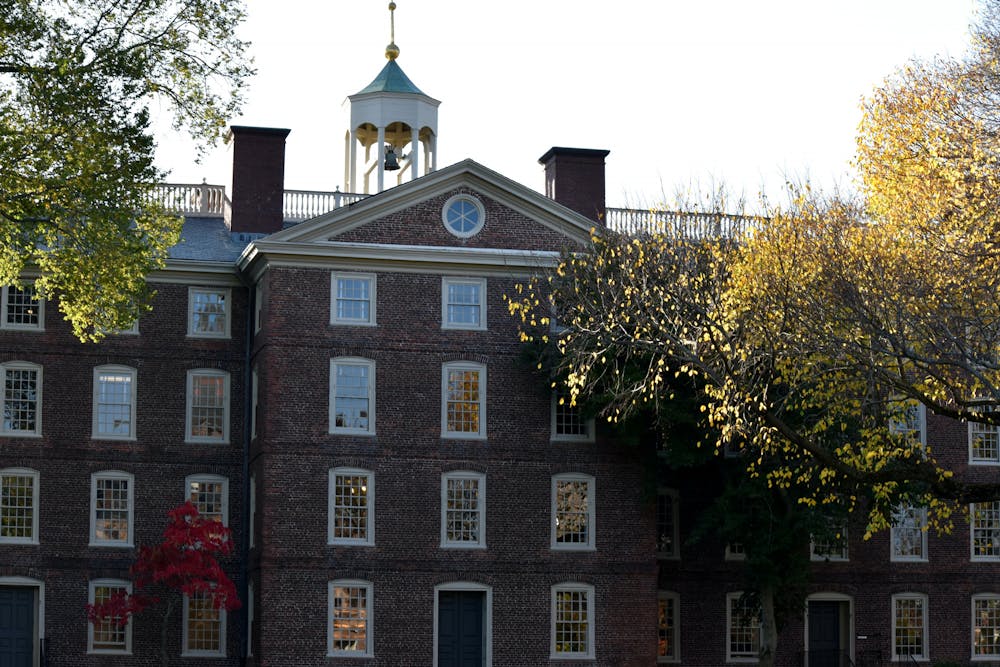The University has declined the Teaching Assistant Labor Organization’s request for voluntary recognition of their union, according to a letter reviewed by The Herald from Executive Vice President for Planning and Policy Russell Carey ’91 MA’06 sent to TALO organizers Tuesday evening. TALO organizers plan to proceed with their unionization effort by filing for a workplace election with the National Labor Relations Board, organizers told The Herald.
TALO’s unionization campaign, if successful, would represent computer science teaching assistants on campus, The Herald previously reported. TALO held a rally on the Main Green Dec. 8 in support of the union’s formation and delivered a letter to the office of President Christina Paxson P’19 requesting voluntary recognition from the University.
In the University’s response to TALO organizers, Carey wrote that the University declined TALO’s request for voluntary recognition because it believes “a union election is a critical and inclusive step for any community of individuals interested in forming a union.”
The University recommended that TALO organizers “file the appropriate petition with the National Labor Relations Board to initiate the election process,” Carey added.
Julia McCauley ’23, a member of TALO’s organizing committee, said that the group’s organizers expected this response from the University, but they were nonetheless “disappointed” by the decision given the “supermajority of support” for the union among CS TAs.
According to McCauley, the University’s refusal to voluntarily recognize TALO delays “better (working) conditions and better learning conditions for students by not engaging in contract negotiation now, but rather pushing it off until after the (NLRB-conducted) election.”
TALO will proceed by working with the Graduate Labor Organization’s lawyer to file for a workplace election with the NLRB “in the next few weeks,” said Colton Rusch ’23, a member of the group’s organizing committee. The NLRB will then notify the University of TALO’s petition and begin verifying the authorization cards — documents signed by employees authorizing a union to represent them in employment negotiations — submitted by TALO.
During the verification process, the University will have the opportunity to dispute the validity of the authorization cards, according to Rusch. If the NLRB verifies at least 30% of the authorization cards, they will schedule a workplace election for CS TAs. Rusch expects that the election — which will require a majority of the votes cast to be in favor of unionization to certify the union — will take place in person “sometime early next semester.”
In his letter to TALO organizers, Carey wrote that “the University will respect the choice made by students in an NLRB-conducted election, and … will not engage in, or tolerate, any conduct that interferes with or seeks to inappropriately influence student choices.”
Carey said that the University will “convey and communicate accurate and factual information to eligible voters in the time period leading up to an election,” encouraging GLO and TALO do so as well. He also stressed the importance of students having “the full range of information available to them about what unionization entails, including the anticipated amount of student dues that will be deducted from their hourly pay, how those dues will be expended … and how decisions will be made about those dues and other union matters.”
If TALO’s organizing committee is made aware of any unfair labor practices by the University in the lead-up to the election, Rusch said that the committee will work with GLO to document these violations and report them to the NLRB.
Both Rusch and McCauley expressed confidence in the future of TALO’s organization campaign. “We're really excited moving forward,” McCauley said. “We think our chances (of winning the election) are good. Supermajority support is well more than what we need to win this fight.”
“I'm definitely excited,” Rusch said. “I think everything that's been happening has filled me with a lot of hope for the future of student workers — in the short term for CS TAs, but also for the larger body of undergrad workers.”
TALO is continuing to reach out to CS TAs to share the union's mission. “We want to make sure that every single (CS) TA knows exactly what we're doing, who we are and what we stand for,” McCauley said. “We want every TA to be a part of this effort and to voice their opinions.”
Correction: A previous version of this story misstated that the University, rather than GLO or TALO, would disseminate information about dues and union decision-making. The Herald regrets the error.

Sam Levine is a University News editor from Brooklyn, New York covering on-campus activism. He is a senior concentrating in International and Public Affairs.





